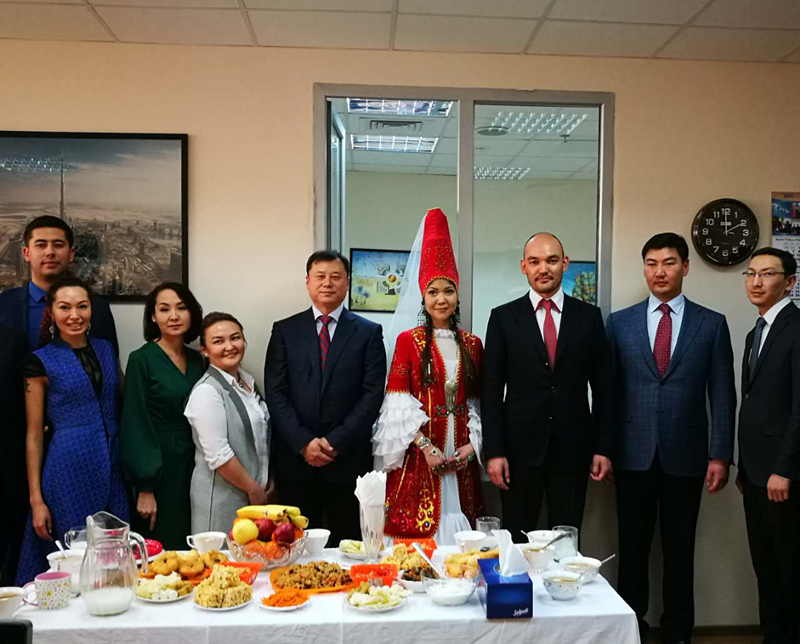Tianjin University People Involved in the Belt and Road Initiative: Qian Yalin

Qian Yalin (fifth from the left)
The Belt and Road Initiative is the abbreviation for China's Silk Road Economic Belt and the 21st Century Maritime Silk Road policy. Tianjin University, adhering to the mission of strengthening the country by education has trained more than 200 thousand graduates. There has been and are a great number of these students working all over the world since the University’s foundation.
The Belt and Road Initiative was proposed by President Xi Jinping in the autumn of 2013. And the opening ceremony of the Belt and Road Forum for international cooperation in May caught the attention of the public.
In fact, graduates of Tianjin University have already caught the winds of the Belt and Road Initiative in recent years to dedicate their wisdom and diligence to major projects along the route. The presence of students of Tianjin University can be seen in almost all of the key projects in Iraq, Pakistan, Vietnam, Malaysia, Qatar, Kenya, Belarus, Egypt and other participating countries. They have given full play to what they learned to bring China’s advanced experience and technologies to foreign countries and earning a good reputation for China with a great number of benchmark projects.
From mid-May to the present, more than a dozen students from engineering management and journalists from Tianjin University Student Journalists have worked together to deliver in-depth interviews of 15 alumni to tell their stories about the Belt and Road Initiative and to share their expectations with their junior fellows.
Qian Yalin graduated in 1984 as an undergraduate student at Tianjin University. He is now a General Manager of KCP (Kazakhstan-China Pipeline LLP).
The overall annual capacity of China-Kazakhstan crude oil pipeline, for which Qian Yalin is responsible, is 20 million tons with a total length of 2,798 km. The Atyrau-Kenkiyak oil pipeline, the early stage of the China-Kazakh crude oil pipeline, is 448.8 km long and was completed by the end of 2003. The Atasu-Alashankou section, the first phase of the latest project, totaling 962.2 kilometers, with its west end at Atasu in Kazakhstan, and the other end in China at Alashankou, delivered a full line of oil in May 2006. The Kazakh-Kumkel section, the second phase of the project, is 761 kilometers long and was completed and put into production in July 2009.
As a leading team member, who is involved in the Belt and Road Initiative, Qian has a profound understanding of the significance of the initiative: the pipeline in itself is a valuable resource, and is related to geopolitics. The construction of transnational pipelines requires a relative high standard of cooperation in the political and social environment and must be conducted between countries forming a sound basis for a mutually beneficial relationship. The transport of crude oil to China is not only meets China’s requirements for resources, but also provides many jobs for Kazakhstan and promotes the economic development of Kazakhstan.
Speaking of the current requirements for personnel training, Qian Yalin thought that the training of project management students is mainly oriented to the service side, such as the provision of technical services, consulting, and construction. While training for the investment side is relatively lacking. Therefore, training should be aimed to achieve two goals to train students: as the investor and the organizer. In addition, students should stick to their dreams, not just live for a moment of adventure.
Message to the students:I welcome you to our company to make contributions to the great cause of the Belt and Road Initiative.
Editors: Yin Shiyu and Ross Colquhoun

